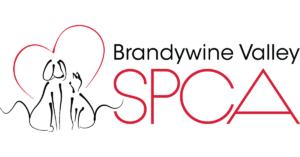Our Mission. Who We Are.
The mission of the Humane Society of Harrisburg Area is to build a better community for pets and people through compassion, protection, education, and collaboration.
The Humane Society of Harrisburg Area (HSHA) serves pets and people in Dauphin, Cumberland, and Perry Counties, an area of more than 600,000 people. HSHA not only helps our community’s homeless, abandoned, and lost pets but also acts as a resource for individuals to receive support through our various programs and services, focusing on providing quality care for people and our shelter companions.
Together, We’ve Built a No-Kill Harrisburg.

 For a community to be considered no-kill, no healthy or treatable animal is euthanized when the necessary resources are available. The national benchmark to be considered no-kill is a 90% Live Release Rate.
For a community to be considered no-kill, no healthy or treatable animal is euthanized when the necessary resources are available. The national benchmark to be considered no-kill is a 90% Live Release Rate.
No-kill means healing the animals who can be healed, treating behaviors that can be treated, and prioritizing the safety of both pets and people in our communities. When we value those objectives, humane euthanasia is used as a last resort in instances when an animal is deemed too ill or too dangerous for rehabilitation.
The Humane Society of Harrisburg Area was proudly named a No-Kill Shelter in 2024 by Best Friends Animal Society.
Investing in their Futures, One Brick at a Time.
We are committed to enriching the lives of the animals at the Humane Society of Harrisburg Area. We intend to further enhance the quality of care for our companions by investing in the facility. Changes already implemented include adding temperature controls in the dog kennels to improve their overall living conditions and adding three large outdoor play yards for enrichment and daily exercise. Your support & investment will directly impact the quality of life experienced by our companions during their stay with us.

Air Conditioning in Kennels

Outdoor Play Yards
FAQs
What is an open adoption?
HSHA practices and promotes an open adoption processes. This approach does away with rigid adoption policies and lengthy applications, and utilizes open ended conversations to help anyone walking into HSHA feel respected, become more educated about any pet’s needs and help determine which type of pet may be appropriate for their home.
Our trained staff engage potential pet parents at our shelter, via phone, online, and at off-site events to enhance the entire adoption experience and to better ensure an adopted pet’s future in with its new family. Through an open adoption process stronger bonds can be built between shelters and adopters with the shared goal of a long and happy relationship with their new pet. Children who are part of this positive process may, in the future, also look toward adoption as their first option.
HSHA recognizes that reducing barriers in the adoption process will not result in individuals getting pets who otherwise would not have done so. Pets can be found through a variety of scenarios and circumstances. Our goal is to strive for more people to look to find a new pet from an animal shelter first before considering any other source. Animal shelters can place a pet into a home who has been sterilized and vaccinated and comes with care education and resources to support families through the life of their pet, potentially leading to future reduction in shelter intake.
Is HSHA affiliated with Brandywine Valley SPCA?

HSHA officially merged with Brandywine Valley SPCA following an affiliation agreement at the start of 2024. Joining this nationally recognized leader in animal welfare provides us with invaluable resources and expertise that have been instrumental in our growth. We are proud to be part of the BVSPCA family.
What is No-Kill? Is HSHA No-Kill?
For a community to be considered no-kill, no healthy or treatable animal is euthanized when the necessary resources are available. The community’s focus should be on saving as many lives as possible through positive outcomes (adoption, transfer to rescue groups, etc.)
The no-kill threshold for a community is considered to be a 90 percent live release rate or 90 percent of animals exiting alive. That means the shelter(s), private organizations, SPCAs and/or humane societies handling the animal control intake and surrenders in that community must be collectively saving 90 percent or more of the animals who come through their systems.
HSHA is committed to reaching No-Kill status by the end of 2024. The path to No-Kill Harrisburg focuses on lowering barriers to adoption, increasing vital safety net programs for pet families to help keep pets in homes, and supporting care for the lost, stray, and neglected animals who rely on us.
You can see our current Live Release Rate by viewing our statistics located on this page.
Does HSHA only adopt out cats and dogs?
While most of our adoptions are cats and dogs, we also shelter “pocket pets,” such as rabbits, guinea pigs, ferrets, hamsters, gerbils, and birds. In addition we adopt horses and a menagerie of farm animals. If you are interested in adopting a pocket pet, equine or farm animal. Please email or call our Adoption Center to see what animals are available.
Why doesn’t the Humane Society take strays from some municipalities?
Some municipalities choose not to contract with HSHA for residential care services for stray animals found within their municipality. Thus, HSHA is unable to take in strays from these areas because we do not receive support from the municipality to care for these animals. If a citizen from a non-participating municipality is willing to pay the intake fee, and there is space available in the shelter, we may be able to accept the animal. HSHA encourages citizens in non-participating municipalities to urge their municipality to participate in contracted services. Click here for help.
What is the Humane Society's policy on feral cats?
HSHA supports and promotes trap-neuter-vaccinate-return (TNVR) in the management of free-roaming and community cat populations as part of a comprehensive population control strategy. TNVR programs provide a humane and more effective alternative to euthanasia of otherwise healthy cats to manage the community cat population. Community cats often have a food source and established life at a location it is familiar with, which resources can only support a given number of cats. Removing community cats simply opens space within a colony for a new cat to find those resources.
Trapping to euthanize is simply a revolving door. Any cat removed from a colony and killed will likely be replaced by another. Such cats should be spayed or neutered, vaccinated, ear-tipped, and permanently identified as such with a tattoo and/or microchip prior to returning to their original location so anyone encountering a cat or colony knows the cat is been part of a managed program.
TNVR programs should be part of a larger management strategy that may include public education, the promotion of responsible cat ownership, as well as affordable and easily accessible spay-neuter, veterinary care, and adoption programs. The Boardwalk Cats Project in Atlantic City, NJ is just one example of the success that a multi-faceted TNVR program can have, a project that saw a 75% reduction in the free-roaming cat population of managed colonies.
HSHA accepts feral cats to be altered, vaccinated, and returned to the place from which they came (known as our Community Cat Program) at the cost of $50 per cat. For more information and to schedule an appointment, please call the Veterinary Resource Center at 717.702.7330.
Where do I find 990s and Audited Financial Statements from previous years?
These documents are available below:
990 2013 2013 Audited Financial Statements
990 2014 2014 Audited Financial Statements
990 2015 2015 Audited Financial Statements
990 2016 2016 Audited Financial Statements
990 2017 2017 Audited Financial Statements
990 2018 2018 Audited Financial Statements
990 2019 2019 Audited Financial Statements
990 2020 2020 Audited Financial Statements
990 2021 2021 Audited Financial Statements
990 2022 2022 Audited Financial Statements
990 2023 2023 Audited Financial Statements
